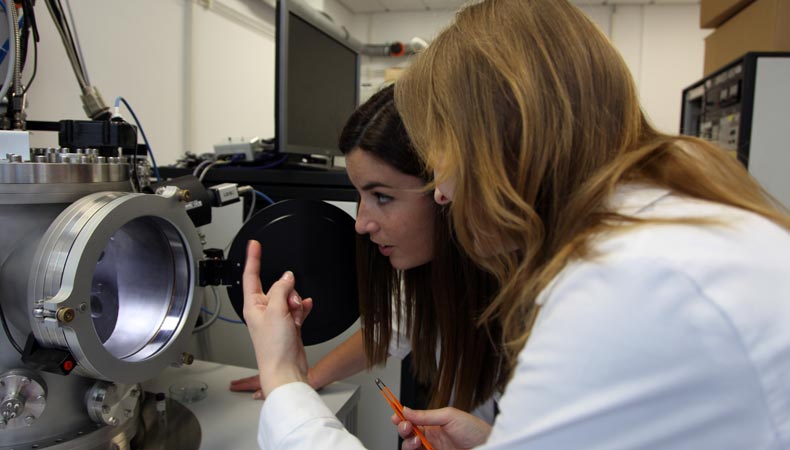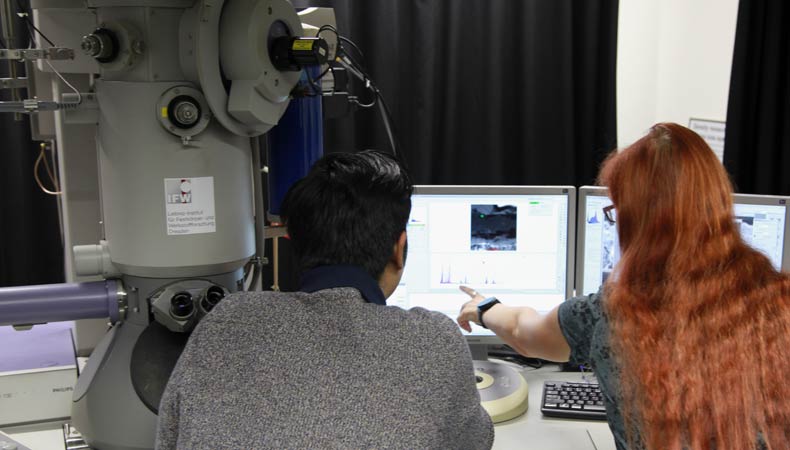Sorry, no vacancies available currently.
ESR positions
15 Early Stage Researchers (ESRs) have been recruited by the European Training Network - BIOREMIA.
The ESRs are enrolled in a unique interdisciplinary training programme of leading academic and industrial organisations. In addition to their individual scientific projects, all fellows benefit from a dedicated training programme comprising an integrated curriculum of local and intensive network courses, schools and workshops and from participation in various international conferences.
The maximum duration of the appointment is 36 months, full-time employment contract. Strict eligibility criteria relating to professional experience (at the time of recruitment) and mobility apply to every ESR position.
The 15 Early Stage Researchers (ESR) positions & projects are presented below.
Leibniz Institute for Solid State and Materials Research Dresden (IFW, in Germany) - 2 ESR positions:
- ESR 2: Low-rigidity beta-type Ti-based alloys with intrinsic antibacterial and anti-biofilm properties
- ESR 9: Corrosion and electrochemical response of new metastable Ti alloys with and without bacteria-killing oxide-based coatings
Montanuniversität Leoben (MUL, in Austria) - 1 ESR position:
- ESR 4: Fabrication and functionalization of hierarchical micro-/nano-patterned bulk metallic glasses
University of Ioannina (UOI, in Greece) - 1 ESR position:
- ESR 1: Antibacterial coatings of metallic surfaces: From ab-initio to large scale molecular dynamics simulations
University of Gothenburg (UGOT, in Sweden) – 2 ESR positions:
- ESR 11: Material induced inhibition of biofilm formation
- ESR 12: Interplay between inflammation and regeneration and its modulation by surface and bulk composition of metallic materials
University of Cambridge (UCAM, in United Kingdom) – 2 ESR positions:
- ESR 5: Optimisation of biomechanical behavior and deformation mechanisms of antibacterial glassy alloys
- ESR 6: Antimicrobial Bioactive Composites with controlled Resorbability
Universitat Autonoma de Barcelona (UAB, in Spain) – 2 ESR positions:
- ESR 3: Fabrication and characterisation of dense and porous Fe-Mn-(Ag,Zn) based alloys with enhanced antibacterial performance for biodegradable implants applications
- ESR 8: Aqueous electrodeposition of hydroxyapatite (HA) and Ag NPs-HA and ZnO-HA composite films with antifouling performance
Università degli Studi di Torino (UNITO, in Italy) – 1 ESR position:
- ESR 7: Design of antimicrobial mechanism of metallic patterned hydrophobic surfaces produced by dealloying and plastic flow deformation of metallic glasses
PX Services SA (PXS, in Switzerland) – 1 ESR position:
- ESR 13: Bactericidal properties of precious metal-based glassy alloys: an industrial design approach towards a novel class of anti-biofouling materials
Ashland Specialties Ireland Ltd (Ashland, in Ireland) - 1 ESR position:
- ESR 10: Sustainable manufacturing of anti-fouling and anti-bacterial bioresorbable PEG-polymer coatings for metal surfaces of implantable medical devices and nanotube-based drug delivery system
Anthogyr SAS (Anthogyr, in France) - 1 ESR position:
- ESR 14: Minimally-invasive dental implants with improved microbiological safety from Ti-based bulk metallic glasses
Stryker Trauma GmbH (Stryker, in Germany) - 1 ESR position:
- ESR 15: Impact of implant coatings on osseointegration and biofilm prevention
Benefits
The benefits of being an Early Sage Researcher in a European Training Network include:
- You will be supervised by excellent group leaders from academia and industry – they are all outstanding in their research, business, and trainings.
- You will get the chance to participate in specially developed courses (e.g. on specific techniques, academic soft skills, etc.)
- You can start building your personal and professional network at a very early stage in your career due to the embedding of our ESRs projects in an academic / industrial network.
- You will be exposed to industry and the challenges in industry already during the project, because we also have partners from industry in our network (who also contribute to the training).
- You will get the opportunity to spend some time in the labs of other partners (thereby you will get familiar with other disciplines, techniques, cultures etc.).
- You will get a very attractive salary plus an allowances package in accordance with the Marie Skłodowska-Curie Actions (MSCA) rules and the personal circumstances of the applicant. The exact salary will be confirmed upon appointment and is dependent on the Country correction factor (to allow for the difference in cost of living in different EU Member States). For further information please visit the EU MSCA website.







